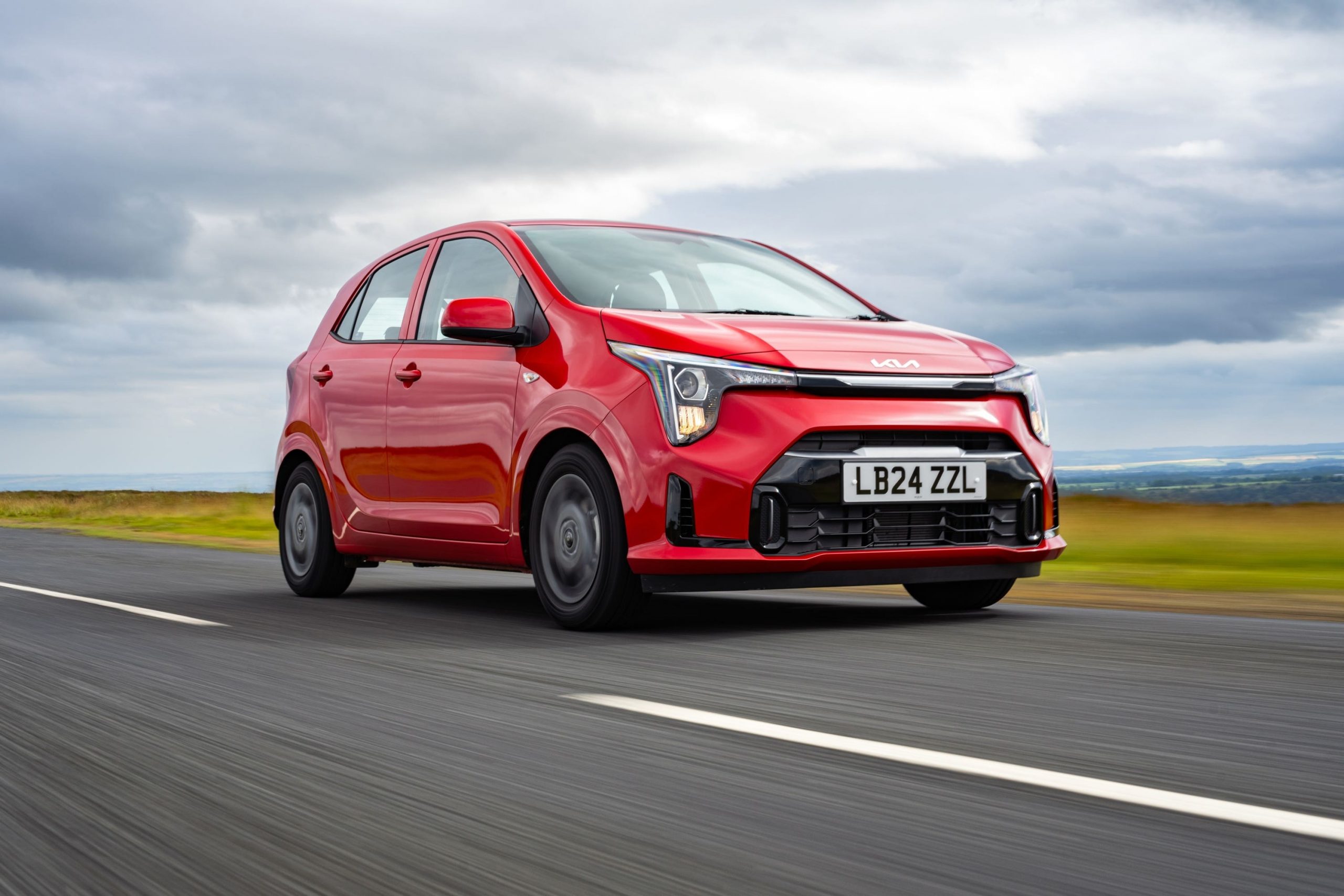One of Britain’s cheapest new cars on sale has just received an extensive facelift to keep the city car segment alive. Cameron Richards has driven it.
What is it?
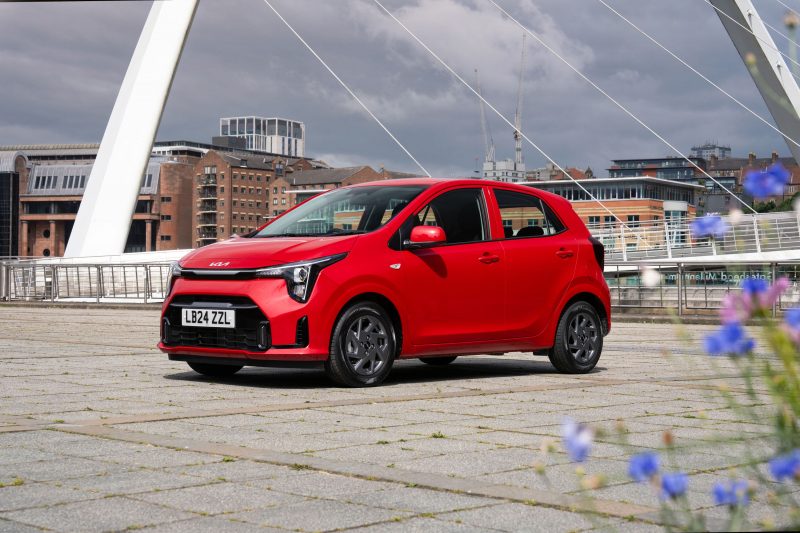
The city car is dead, right? Not in Kia’s eyes – it still thinks the Picanto has some tricks up its sleeve to entice buyers away from crossovers and compact SUVs.
The little Kia has been around for two decades and in that time it has matured and grown to become one of the best cars in the compact car class.
Underneath its skin, you’ll find the same running gear as the Hyundai i10 and while both cars may have the same mechanicals, there are changes in their engine choices, equipment levels and styling. We’ve been driving the latest Picanto to see if this extensive facelift has kept it at the top of the A-segment class.
What’s new?
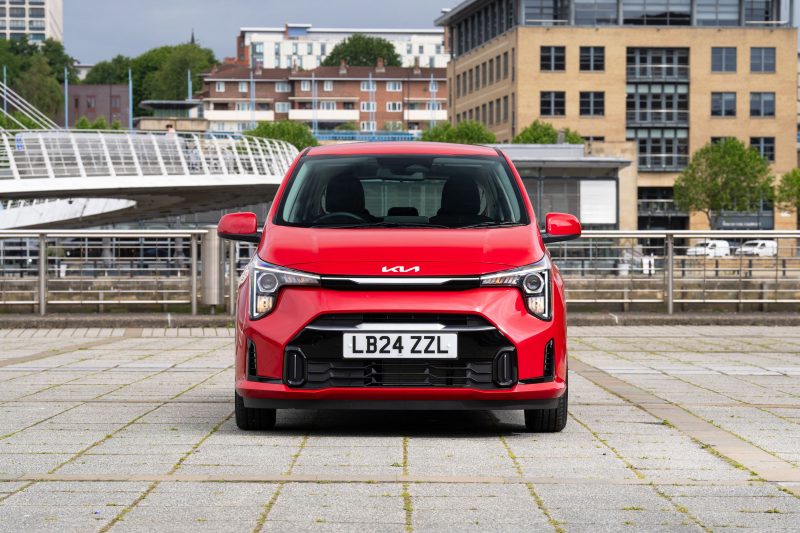
Believe it or not, but the current generation Picanto has been around since 2017 and this is its third facelift to keep it in-line with its shrinking competition.
Exterior shape has remained the same, but there is a more aggressive front end that takes styling cues from its big brother, the EV9 SUV, while at the back there is now a light bar and fresh rear tail lights as well as an updated rear bumper.
Inside, there’s not much that has changed from the old car, but that doesn’t matter as the Picanto focuses on big car toys for a smaller price tag.
What’s under the bonnet?
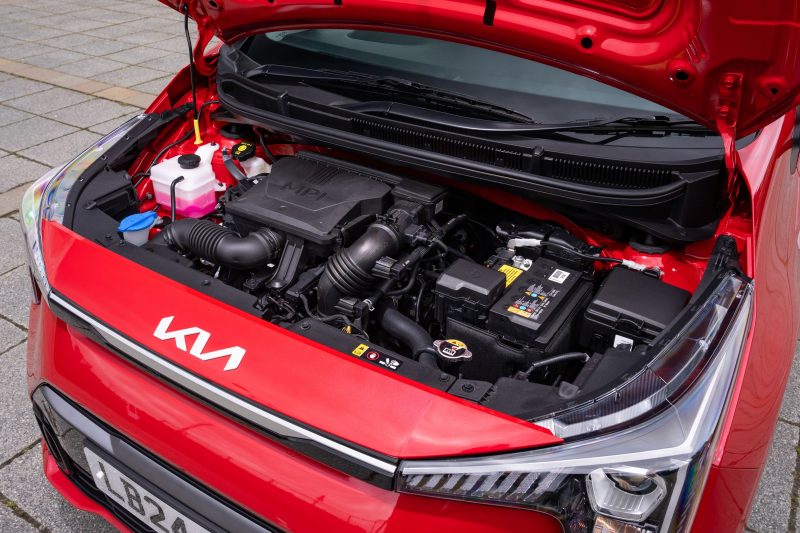
We’re driving the entry-level 1.0-litre three-cylinder naturally aspirated petrol engine that delivers 62bhp and has a top speed of 90mph. Acceleration isn’t scintillating at 15.4 seconds to go from 0-60mph – but you’re not going to be buying this car for outright performance.
There is also the choice of a more powerful 1.25-litre four-cylinder petrol unit that pushes out 77bhp and has a top speed of 98mph. This engine is better suited for more motorway use as it’s quieter, more refined and has greater acceleration for those overtaking manoeuvres.
What’s it like to drive?
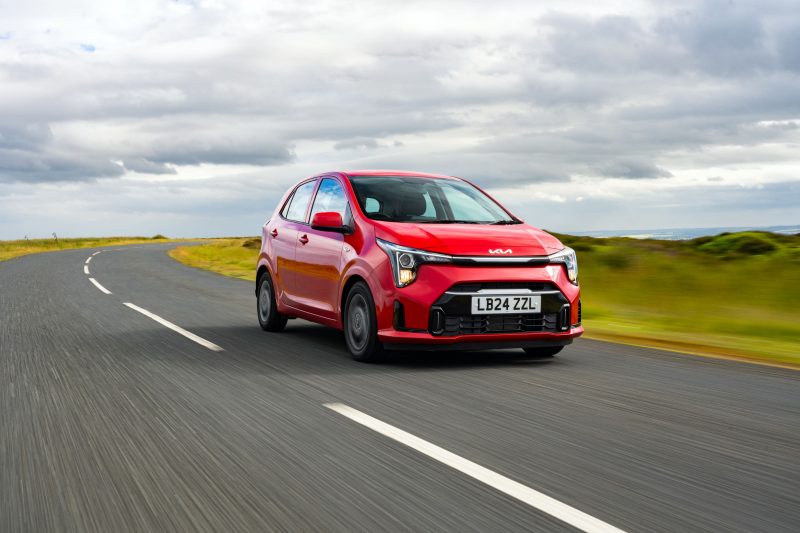
There is something very satisfying driving something as basic and small as a Kia Picanto.
We’re driving the basic ‘2’ specification that comes with tiny 14-inch wheels which make the ride a lot smoother, but it’s still a bit bouncy over larger bumps. However, we can accept that given it’s a car at the cheaper end of the market.
In terms of handling, the Picanto has very light steering which also feels numb, but the car does seem to grip rather well and there isn’t too much body roll in the corners either.
The 1.0-litre three-cylinder petrol engine will not be setting the world alight with its acceleration, but around town and even on the motorway, it feels more than adequate. However, overtaking and driving up hills needs a lot of planning as it struggles up steep inclines. The gearbox, however, is very slick, smooth and incredibly light to slot into place and the clutch has a nice feel, too.
Fuel economy is excellent with our car returning an impressive 61.2mpg on a long run, while filling up only cost around £40 to brim the tank – making the Picanto incredibly cheap to run.
How does it look?
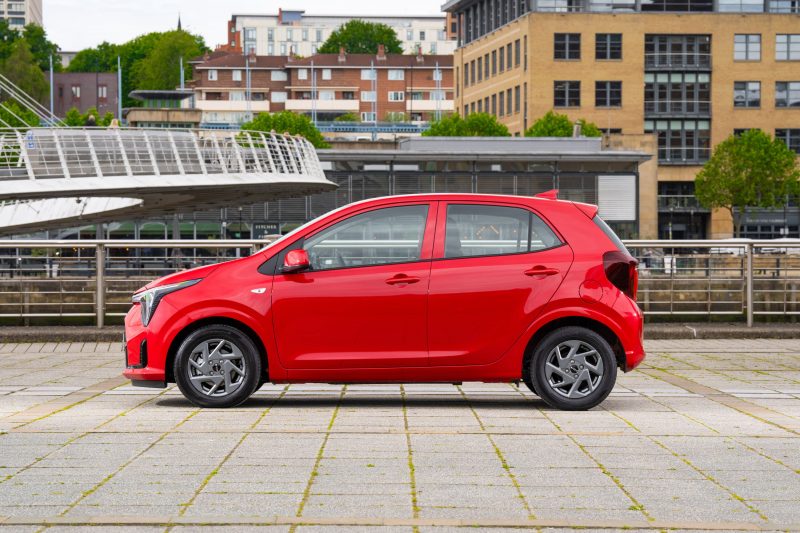
City cars go two ways when it comes to styling. They either go down the aggressive and sporty route, or they focus on the cutesy and innocent look. However, the Picanto definitely falls into the former category. The front end shares similar design elements of other models in the Kia family with its wraparound headlights that form into the grille, while at the back a gloss black diffuser and rear light bar that runs the width of the tailgate also gives the car more presence.
Our test car is a little more plain looking due to the 14-inch alloy wheels and the rather dull Smokey blue paint finish, however the GT-Line and GT-Line S models with their side skirts and bigger wheels certainly make this little Kia a great looking city car.
What’s it like inside?
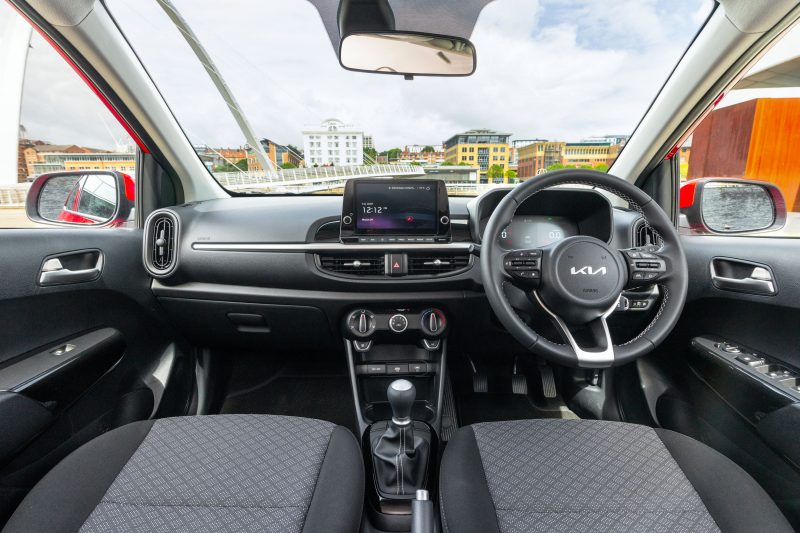
From the naked eye, inside the updated Picanto things look very similar to the old model, and that’s because it is – with the exception of a few changes.
There is now a new digital instrument cluster which houses information such as the traffic sign assist and fuel economy readings.
The interior won’t be winning the awards for luxury, but everything feels built to last and the plastics have a nice textured pattern to mask the harder touchpoints.
There is a small armrest with a little storage area, cup holders and medium sized glove box. The driving position is good, but is let down by the lack of reach adjustment in the steering wheel.
The back seats are easy to access thanks to the standard five-doors and their wide aperture. Space in the back is more than good enough for smaller passengers and average sized adults will be more than happy for a short journey, too.
Boot space is impressive for a city car at 255 litres, which is 73 litres more than a Fiat 500. Meanwhile, that space expands to 1,010 litres when the rear seats are folded, but sadly there is a large lip, making it harder to load longer items.
What’s the spec like?
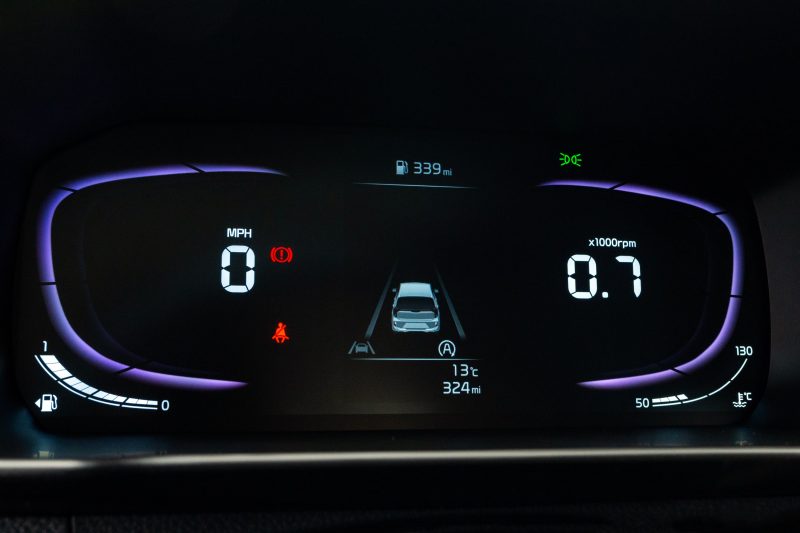
Kia doesn’t mess about providing extensive levels of different trim levels. Instead, there are just five versions to choose from with every model incredibly well equipped with ‘2’, GT-Line, ‘3’, Shadow and GT-Line S.
Gone are the days when the entry-level car came with manual door mirrors and without luxuries such as air-conditioning. Even the standard ‘2’ model which we’re driving – and is priced from £15,595 – comes with electric windows all around, electric heated mirrors, a rear-view camera, automatic headlights and an eight-inch touchscreen navigation system.
Further up the range such as the GT-Line S which is priced from £18,445 and comes with keyless entry and push button start, an electric glass sunroof and 16-inch alloy wheels
Verdict
It’s a crying shame that the A-segment is dying, and with only three vehicles in this sector, the Picanto doesn’t have a lot of competition. Although it may not have many rivals, as an overall package, the Picanto is an extremely likeable, grown-up city car and if you buy a GT-Line version – it looks great, too.
It’s cheap to buy and run as well as having bags of character when behind the wheel. If you’re looking for a no-nonsense, simple and well-equipped city slicker, then the Picanto is one of the very best.
Facts at a glance
- Model as tested: Kia Picanto ‘2’
- Price as tested: £16,170
- Engine: 1.0-litre petrol
- Power: 62bhp
- Torque: 93Nm
- 0-60mph: 15.4 seconds
- Top speed: 90mph
- MPG: 61.2mpg
- CO2 emissions: 111g/km
By Cameron Richards

